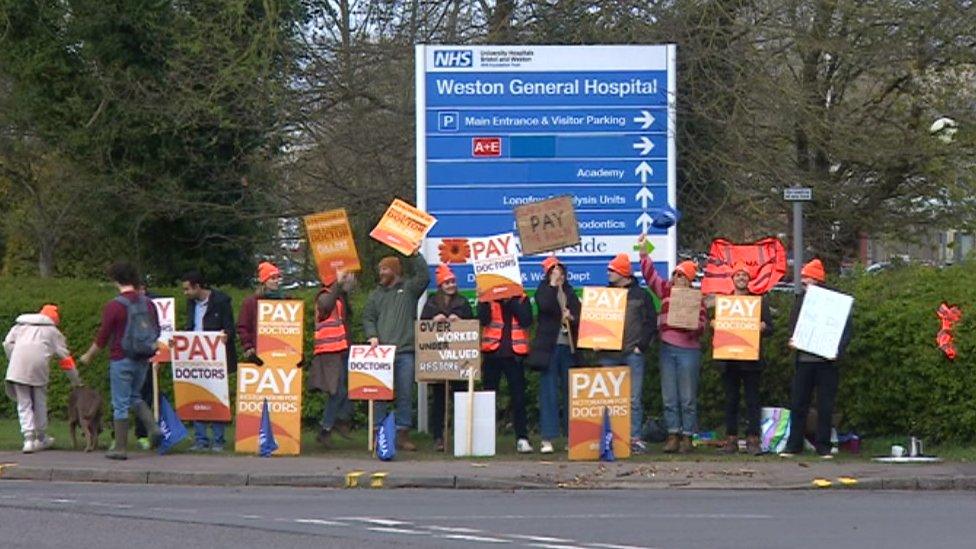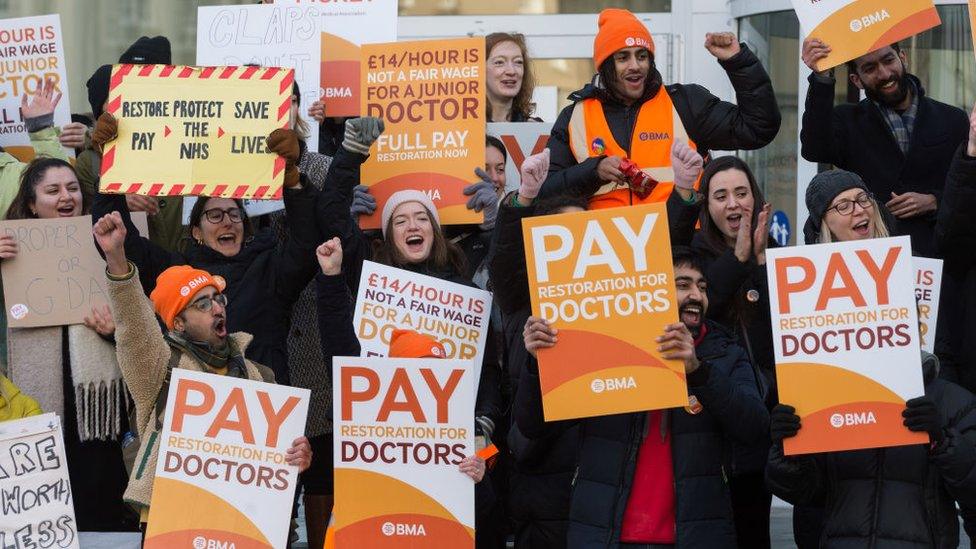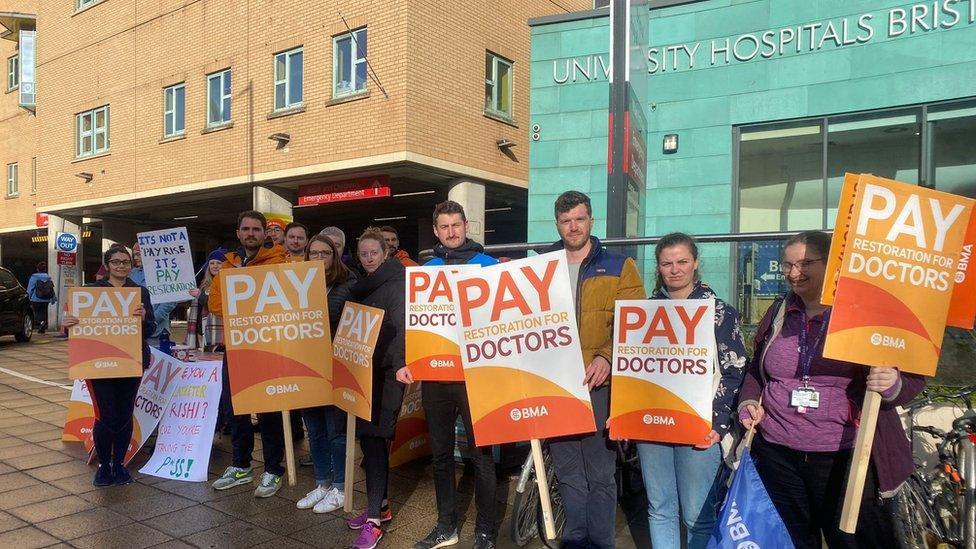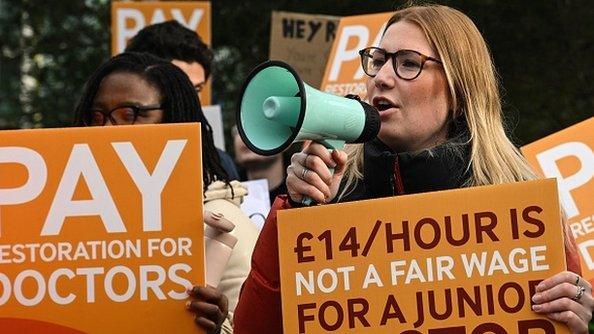Union 'misled' over Weston General Hospital junior doctor shortage
- Published

The BMA says Weston General Hospital did not need the extra staff it requested
A trade union has accused a hospital's managers of "misleading" it in order to get junior doctors on strike to return to work.
The British Medical Association (BMA) enabled seven junior doctors to leave the picket line at the request of Weston General Hospital on Tuesday.
But the BMA now claims the hospital already had sufficient cover.
The Somerset hospital's trust said its request for the doctors "accurately reflected" concerns for patient safety.
It said that in making the request it had been responding to unplanned absences - but then other staff stepped in to provide cover, meaning ultimately it did not need the seven junior doctors.
Junior doctors are two days into a four-day strike until Friday in a row over pay and conditions.

Thousands of junior doctors led by the British Medical Association will strike over four days
The BMA is seeking a 35% pay rise, which it terms a "pay restoration" because junior doctors have had 15 years of below-inflation wage rises.
The government has said the increase is unaffordable.
More than a quarter of a million appointments and operations could be cancelled, and some hospitals say up to half of planned treatment is affected.
The request from Weston General Hospital managers - known as a derogation - for doctors to leave the picket line is permitted under strike contingency plans.
Hospital leaders had requested the seven doctors to work in A&E in order to maintain safe staffing levels.
The BMA revealed that on Tuesday it agreed to the derogation but criticised the way hospital bosses had dealt with the issues.
In a statement, it said: "Protecting patient safety during strikes has always been a priority to the BMA.
"However, poor planning by local management has left the emergency department and acute medicine at Weston General Hospital exposed."
'Incredibly disappointing'
In a series of tweets 24 hours later however, the union said it had "revoked the derogation" granted to the hospital.
"It has become apparent that both the BMA and NHS England were misled over the level of staffing cover," the BMA said.
"Either local management were unaware they had sufficient senior cover, or they deliberately misled us.
It continued: "We will be asking NHSE (NHS England) to explore any potential probity issues.
"We granted a derogation in good faith and it is incredibly disappointing to see this abused in this way.
"We are grateful to our consultant and SAS (speciality) colleagues for their hard work providing cover during the strikes."
'Concerns about risk'
Prof Eugine Yafele, chief executive of University Hospitals Bristol and Weston NHS Foundation Trust, said patient safety "is our top priority".
"When applying for the derogation, we provided information requested by the BMA that accurately reflected our concerns about risk to patient safety, during what is a fast-moving situation," he said.
"These concerns were supported by consultants providing cover.
"As part of our established operational planning for periods of industrial action we've been exploring all avenues for ensuring sufficient cover for key services over the course of the week, as well as each day responding to unplanned absences.
"In doing so, we are very grateful to colleagues who have stepped in to provide medical cover, which has made the difference in ensuring we have sufficient staffing without ultimately having had to draw on the derogations."

Follow BBC West on Facebook, external, Twitter, external and Instagram, external. Send your story ideas to: bristol@bbc.co.uk
- Published11 April 2023

- Published11 April 2023

- Published10 April 2023
